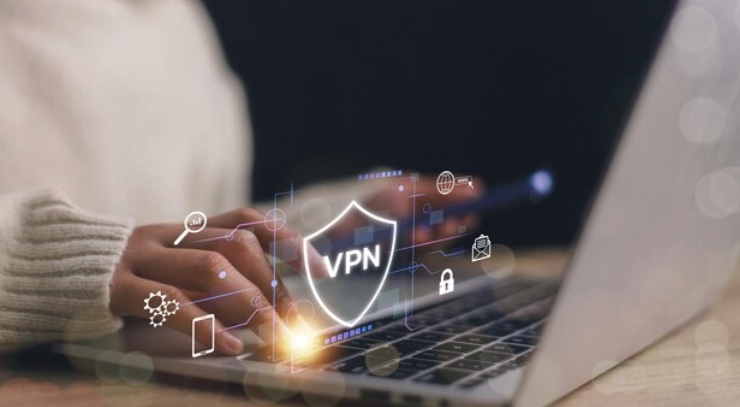Streaming Without Borders: Using VPNs to Access More Content

Streaming services have transformed the way people watch movies, TV shows, and live events. However, not all content is available worldwide.
Licensing agreements and regional restrictions often limit what viewers can access based on their location.
This has led many to explore the use of Virtual Private Networks (VPNs) as a way to bypass these limitations and unlock a broader selection of content.
How VPNs Work for Streaming
A VPN encrypts internet traffic and routes it through a remote server. This process masks the user’s real IP address, making it appear as though they are accessing the internet from another country. For streaming, this means a viewer can connect to a VPN server in a different region and gain access to content that would otherwise be restricted.
Many streaming platforms use geo-blocking technology to control their content distribution. By using a VPN, users can effectively bypass these restrictions. This is particularly useful for expatriates, travelers, and those looking for a wider range of shows and movies.
Not all VPNs are equally effective for streaming. Some struggle with detection methods used by major platforms, which can result in blocked connections. Therefore, choosing a reliable VPN service is essential for a seamless streaming experience.
Benefits of Using a VPN for Streaming
The main advantage of using a VPN is access to a wider range of content. A viewer in one country may not have access to the same library as someone in another region. With a VPN, they can switch locations and explore different catalogs.
Another benefit is enhanced privacy. VPNs encrypt user data, making it difficult for internet service providers (ISPs) and other third parties to monitor online activity. This prevents ISPs from throttling internet speeds based on streaming habits.
Additionally, a VPN can provide security when using public Wi-Fi. Streaming while connected to an unsecured network poses risks, but a VPN shields personal information from potential cyber threats. A fast VPN app for Android device ensures that users can stream content smoothly, even when on mobile networks or public Wi-Fi.
Choosing the Right VPN for Streaming
Not every VPN is built for streaming. Speed, server locations, and bypassing geo-restrictions are key factors to consider. Users looking for a smooth streaming experience should prioritize VPNs with high-speed servers and minimal buffering.

Compatibility with streaming services is another crucial factor. Some VPN providers regularly update their servers to stay ahead of detection systems. Checking user reviews and VPN recommendations can help identify the best options.
For Apple users, probably the best VPN for iOS would be one that maintains stable connections while providing access to region-restricted content without affecting streaming quality. A good VPN should be easy to set up and work seamlessly across multiple Apple devices.
Finally, customer support and ease of use matter. A VPN with 24/7 support and an intuitive interface makes it easier to troubleshoot issues and switch between different locations efficiently.
Legal and Ethical Considerations
While using a VPN to access restricted content is common, it is important to consider the legal and ethical implications. Some streaming platforms explicitly prohibit VPN usage in their terms of service. This means accounts could be flagged or temporarily restricted if VPN activity is detected.
The legality of VPN usage varies by country. In some regions, VPNs are fully legal, while in others, restrictions exist on their use. Users should familiarize themselves with local laws before utilizing a VPN for streaming.
From an ethical standpoint, content licensing exists to support creators and distributors. While VPNs offer a way to bypass these restrictions, it is worth considering the impact on the entertainment industry as a whole.
Common Challenges and How to Overcome Them
One common challenge VPN users face is streaming platforms blocking VPN connections. Many services use advanced detection methods to identify and prevent VPN traffic. To counteract this, some VPN providers offer dedicated streaming servers that are regularly updated to remain undetected.
Another issue is reduced internet speed. Since a VPN routes traffic through a remote server, this can sometimes lead to slower connections. Choosing a VPN with optimized high-speed servers helps minimize buffering and loading times.
Lastly, not all devices support VPN apps natively. Some smart TVs and gaming consoles require additional configuration or a VPN-enabled router to access region-locked content. Checking device compatibility beforehand ensures a smoother setup process.
Final Thoughts
VPNs have become a popular tool for expanding streaming options. They provide access to a wider range of content, improve online privacy, and enhance security when using public networks. However, selecting the right VPN service is crucial to ensure a fast, reliable, and legal streaming experience.
By considering speed, compatibility, and security features, users can make informed choices and enjoy their favorite content without borders. Whether watching international movies or catching up on exclusive shows, a well-chosen VPN opens the door to a truly global streaming experience.
Spotted something? Got a story? Send a Facebook Message | A direct message on Twitter | Email: [email protected] Latest News









